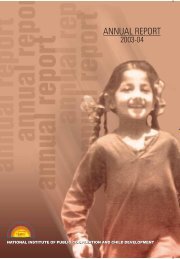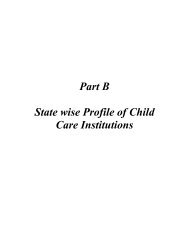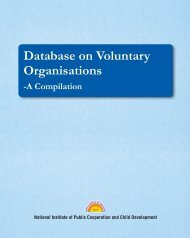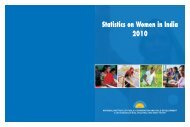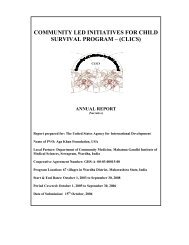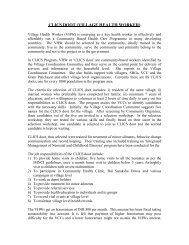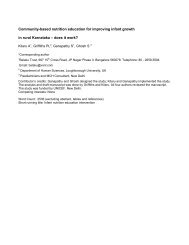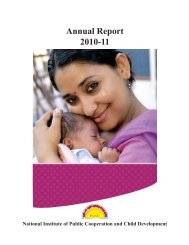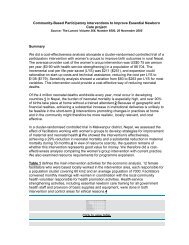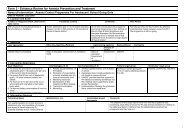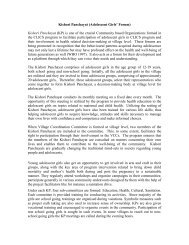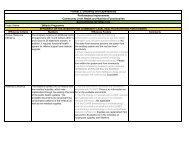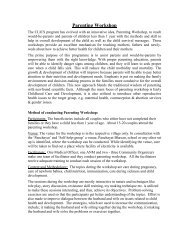Vol. XVI Issue 2 April - June 2012 2012 Documentation ... - Nipccd
Vol. XVI Issue 2 April - June 2012 2012 Documentation ... - Nipccd
Vol. XVI Issue 2 April - June 2012 2012 Documentation ... - Nipccd
You also want an ePaper? Increase the reach of your titles
YUMPU automatically turns print PDFs into web optimized ePapers that Google loves.
intervention and control arm was ( 96.6+10.9 and 86.4+9.9 ) respectively; in the<br />
intervention arm, 22.5 per cent of children had IQ below 90, while in the control<br />
arm 60.1 per cent of children had IQ below 90; the mean DQ among boys was<br />
found 10.1 points higher than among the girls in the control arm; in both the<br />
arms, the mean values of DQ and IQ were lower for the children of working<br />
mothers when compared with those who spent their whole time at home; for<br />
DQ, the difference between mean values of children with working mother vs non<br />
working mothers was 3.3 points in the intervention arm and 8.5 points in the<br />
control arm; the difference between mean values of IQ of children with working<br />
mother vs non-working was 1.4 points in the intervention arm and 3.8 points in<br />
the control arm; in both the arms, the mean values of DQ and IQ were higher for<br />
children with toys at home; in the control arm, both DQ and IQ decreased as the<br />
birth order of the child increased; in the intervention arm, no such relation was<br />
seen in DQ and IQ with birth order of the child. Findings indicated that the<br />
disadvantages due to several factors were being countered by improvement in<br />
Early Childhood Education and Development services through the Anganwadi<br />
Centers.<br />
Conclusion: The study shows that intervention to improve the Early Childhood<br />
Education and Development component through Anganwadi centers will result<br />
in improvement in Developmental and Intelligence Quotient.<br />
Key Words : 1.ICDS 2.PRESCHOOL EDUCATION 3.ANGANWADI CENTRE<br />
4.PSYCHOSOCIAL DEVELOPMENT OF CHILDREN 5.CHILD<br />
DEVELOPMENT 6.MALNUTRITION 7.EARLY CHILDHOOD CARE AND<br />
DEVELOPMENT 8.EARLY INTERVENTIONS 9.ANGANWADI WORKERS<br />
10.HEALTH 11.WARDHA.<br />
17<br />
__________________________________________________________________________________<br />
DCWC Research Bulletin <strong>Vol</strong>. <strong>XVI</strong> <strong>April</strong> - <strong>June</strong> <strong>2012</strong>



